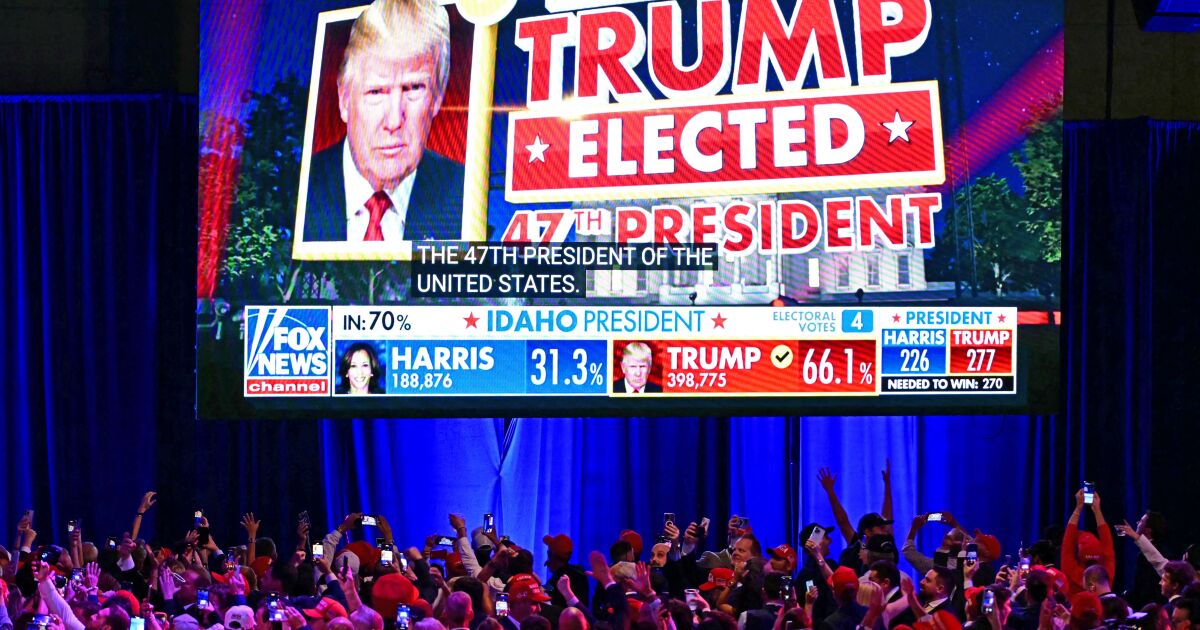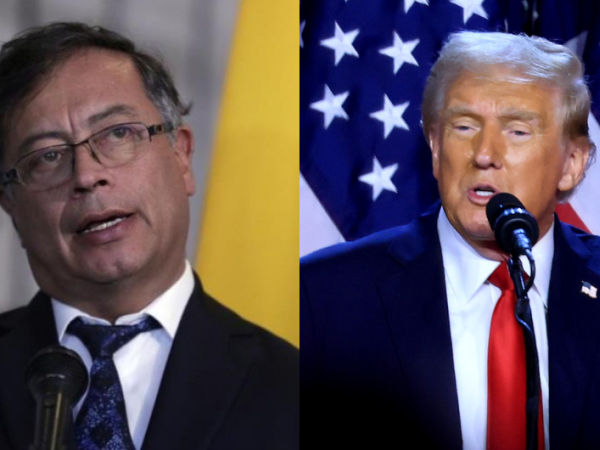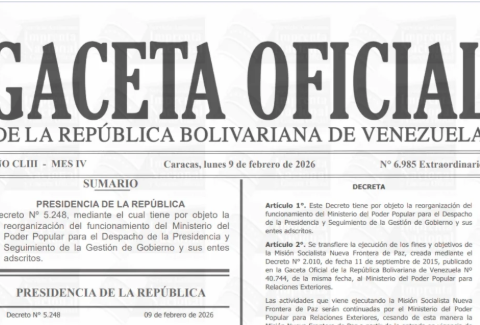Trump recaptured the White House on Wednesday by obtaining more than the 270 Electoral College votes needed to win the presidency, according to Edison Research forecasts.
His Republican Party also gained control of the Senate and could even win the House of Representatives, making it easier for the president to legislate his proposals and push through key appointments.
“Trump’s fiscal promises are seriously problematic—for the U.S. economy and for global financial markets—as they promise to vastly widen an already excessive deficit while threatening to undermine key institutions,” said Erik Nielsen, chief economic adviser to the U.S. UniCredit Group.
“One must conclude that Trump poses a serious—and so far vastly underestimated—threat to the U.S. Treasury market and, therefore, to global financial stability,” Nielsen said.
Import duties, including a universal 10% tariff on imports from all foreign countries and a 60% tariff on imports from China, are a key pillar of Trump’s policies and are likely to have the greatest global impact.
Tariffs inhibit global trade, reduce the growth of exporters and weigh down the public finances of all parties involved. They are likely to raise inflation in the United States, forcing the US Federal Reserve to act with a more restrictive monetary policy.
The International Monetary Fund has already described global growth as weak, with “weak” expansion in most countries. A new blow to global trade may pose a downside risk to its 3.2% GDP growth forecast for next year.
Companies often pass import costs on to the customer, so tariffs are likely to be inflationary for American buyers, forcing the Federal Reserve to keep interest rates high for longer or even reverse course and return. to raise borrowing costs.
This will be even more likely if Trump keeps his spending and tax promises, which could increase the US debt by $7.75 trillion through 2035, according to the nonpartisan Committee for a Responsible Federal Budget.
“Most of the damage would be done under a universal import tariff,” said Rogier Quaedvlieg of ABN Amro. “If final implementation is not universal, the hit to the global economy would be significantly more moderate.”
“Trump’s full package, including a universal package, would likely hit the global economy hard.”
China and Mexico, in the spotlight
For emerging markets that rely on dollar financing, such a policy mix will make borrowing more expensive, dealing a double blow in addition to the loss of exports.
The same forces that could drive up U.S. inflation could weigh on prices elsewhere, especially if Trump slaps outsized tariffs on China, as he has promised.
As the world’s largest exporter, China is desperate to revive growth, so it may seek new markets for goods squeezed out of the United States and dump products elsewhere, especially Europe.
Central banks are likely to react quickly as business confidence, especially in open trade-dependent economies, will deteriorate rapidly.
“Even before a drop in polls, the ECB could be tempted to accelerate its rate cuts to a neutral rate of 2% and, once US tariff policies become clearer, it would be reasonable to cut rates below neutral type,” said Greg Fuzesi of JP Morgan.
Governments are also likely to retaliate against any US tariffs, which would further inhibit trade and further reduce global growth.
High interest rates from the Fed and lower borrowing costs elsewhere would also boost the dollar — as evidenced by the 1.5% drop in the value of the euro and yen overnight — further hurting emerging markets. , since more than 60% of international debt is denominated in dollars.
Mexico could be the most affected given Trump’s rhetoric about closing the border, which occurs in an already deteriorated internal context.
“Mexico is the most at risk,” said Jon Harrison of TS Lombard, as the Mexican peso fell 3% against the dollar.
Mexico is especially vulnerable because trade tensions and threats of deportations could exacerbate internal problems such as cartel activity and the government’s inability to curb violence, Harrison added.

















